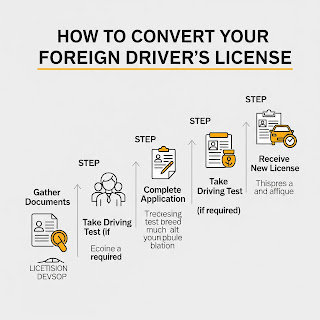Vision 2030 and Saudi Arabia’s Cultural Revival
Saudi Arabia is undergoing a profound transformation, and at the heart of this change is its ambitious development blueprint known as Vision 2030. Launched in 2016 under the leadership of Crown Prince Mohammed bin Salman, Vision 2030 aims to diversify the Kingdom’s oil-dependent economy and establish a vibrant society with a thriving cultural scene. One of the most notable and visible aspects of this vision is the cultural revival sweeping across the country.
In this blog, we will explore how Vision 2030 is reshaping Saudi Arabia's cultural identity, empowering creatives, restoring heritage, and opening new opportunities for tourism, education, and global exchange.
What Is Vision 2030?
Vision 2030 is Saudi Arabia’s strategic plan to reduce its dependence on oil, develop public service sectors like health, education, and tourism, and build a more diverse and sustainable economy. A core pillar of this vision is to create a vibrant society by promoting arts, heritage, and culture.
Key cultural objectives include:
Establishing world-class museums, libraries, and galleries
Supporting local artists and filmmakers
Hosting global events and festivals
Preserving and restoring historical sites
Encouraging cultural tourism
A New Era of Cultural Expression
Historically, Saudi Arabia has maintained a conservative cultural identity, with limited public entertainment and artistic platforms. Vision 2030 marks a paradigm shift by placing culture at the forefront of national development.
Arts and Entertainment Boom
Under the General Entertainment Authority, Saudi Arabia has witnessed a surge in:
Music concerts (including global artists like BTS, Imagine Dragons, and David Guetta)
Theaters, cinemas, and art exhibitions
Literary events and book fairs
Stand-up comedy and cultural performances
In 2018, the first public cinema opened after a 35-year ban, and now dozens of cinemas operate across major cities such as Riyadh, Jeddah, and Dammam. The Red Sea International Film Festival has emerged as a prestigious event on the global film calendar.
Fashion, Design, and Culinary Arts
Vision 2030 also celebrates emerging fields such as fashion, design, and cuisine:
Saudi Fashion Week highlights traditional and contemporary clothing lines.
Saudi Design Festival fosters collaboration across architecture, interior design, and visual arts.
Culinary arts programs promote local food culture while encouraging international fusion trends.
Empowering Local Creatives
Vision 2030 empowers Saudi artists, filmmakers, musicians, writers, and designers by providing them with platforms to showcase their work and gain international recognition.
Initiatives like:
Misk Art Institute (run by the Misk Foundation)
King Abdulaziz Center for World Culture (Ithra)
Saudi Film Commission
...are nurturing young talents and promoting creative industries as essential contributors to the economy. These bodies also offer mentorship programs, exhibitions, and funding for creative startups.
Women, in particular, have seen growing representation in cultural fields, from visual arts and fashion to film directing and music. Haifaa Al-Mansour, for example, became Saudi Arabia's first female filmmaker to achieve global acclaim.
Heritage Restoration and Historical Sites
Saudi Arabia is also reconnecting with its historical roots. Vision 2030 invests heavily in restoring archaeological and heritage sites that had long been underutilized or overlooked.
Key initiatives include:
AlUla: The ancient Nabatean city, with sites like Madain Saleh (Hegra), now transformed into a premier tourist destination.
Diriyah Gate Project: Restoration of the historic capital of the first Saudi state, turning it into an open-air museum and cultural hub.
UNESCO World Heritage Sites: Sites like Al-Ahsa Oasis, At-Turaif District in Diriyah, and the Rock Art in the Hail region are being promoted internationally.
These projects aim to celebrate national identity while creating cultural hubs for both Saudis and international visitors.
For more, read: Historic Sites Around the Holy Kaaba You Might Not Know
The Role of Tourism and International Exchange
The opening up of Saudi Arabia to international tourism is a cultural game-changer. The launch of the e-visa system in 2019 made it easier than ever for tourists to explore the Kingdom’s rich culture, cuisine, and traditions.
Popular events and attractions include:
Riyadh Season and Jeddah Season festivals
Saudi Arabia Grand Prix
MDL Beast Music Festival
Tantora Winter Festival in AlUla
These events attract millions of visitors and serve as platforms for cultural diplomacy and international exchange.
Cultural Education and Awareness
Vision 2030 promotes cultural education in schools and universities. Curriculums are being updated to include:
Music and visual arts
National history and heritage
Creative thinking and entrepreneurship
The Ministry of Culture has also launched:
Scholarships and fellowships for students to study the arts abroad
Vocational training in areas like filmmaking, event management, and museum curation
Additionally, cultural centers and public libraries are being expanded across the country, making knowledge more accessible.
Digital Transformation of Culture
Vision 2030 encourages the digitalization of culture. Museums and heritage sites are launching virtual tours, mobile apps, and AR/VR exhibitions. Digital art is booming through NFTs and Saudi artists participating in global platforms like Art Dubai.
The use of social media influencers and content creators also plays a key role in spreading awareness of cultural values and initiatives, especially among the youth.
Challenges and Opportunities
While the cultural revival is exciting, it also presents challenges:
Balancing modern cultural trends with traditional values
Ensuring inclusivity and accessibility for remote regions
Preserving authenticity in the face of rapid commercialization
However, the opportunities outweigh the obstacles. Saudi Arabia now has the chance to lead the Arab cultural renaissance, reshape global perceptions, and become a regional hub for innovation, art, and creativity.
Conclusion: Culture as a Catalyst for Change
Vision 2030 is more than an economic reform program—it is a bold cultural movement that redefines what it means to be Saudi in the 21st century. From cinema reopenings to ancient city restorations, the Kingdom is embracing a new cultural identity that is dynamic, inclusive, and deeply rooted in heritage.
For locals and expats alike, this is a once-in-a-generation opportunity to witness and participate in a national renaissance. Whether you’re attending a film screening in Jeddah or exploring the ruins of AlUla, you are part of Saudi Arabia’s unfolding story.
Internal Links to Add:




Comments
Post a Comment